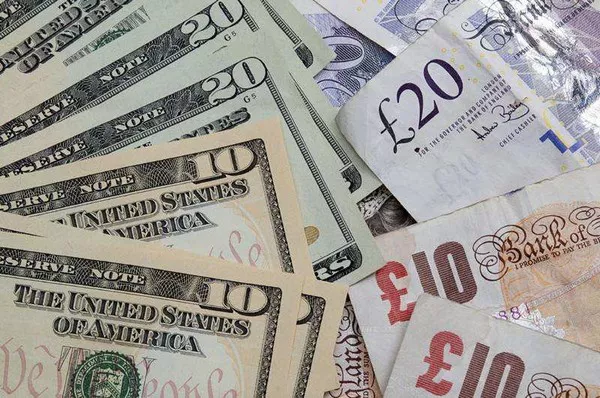In the vast landscape of global finance, currencies play a pivotal role in facilitating international trade and commerce. One such currency that stands out is the British Pound, denoted by the symbol GBP. Understanding the significance and dynamics of GBP is essential for anyone navigating the intricate world of foreign exchange. In this article, we delve into the origins, historical context, and contemporary relevance of GBP, shedding light on its nuances and impact on the global economic stage.
Historical Roots of GBP:
The history of the British Pound can be traced back to the 8th century when the Anglo-Saxon kingdoms introduced silver pennies as a form of currency. Over the centuries, various forms of currency evolved, but it was during the reign of King Henry II in the 12th century that the Pound Sterling, the official name for GBP, emerged. The term “pound” originated from the Latin word “libra,” which means a unit of weight. In this context, it referred to a pound of sterling silver, which was the basis of the currency.
GBP’s association with weight reflects the historical link between currency and precious metals. For a considerable period, the British Pound was directly tied to a specific amount of silver or gold, anchoring its value in tangible assets. This gold or silver standard provided stability and instilled confidence in the currency.
Shifts in the Gold Standard:
The 19th century marked a significant shift in the global monetary system, and the British Pound played a central role in this transformation. The United Kingdom adopted the gold standard in 1821, pegging the Pound to a specific quantity of gold. This move aimed to enhance economic stability and foster international trade by providing a standardized and universally accepted measure of value.
The gold standard era persisted until the outbreak of World War I in 1914, after which many countries, including the UK, temporarily suspended it to finance the war effort. Although the gold standard was reinstated in the post-war period, it ultimately collapsed during the Great Depression in the 1930s. In response to economic challenges, the UK abandoned the gold standard in 1931, leading to a fundamental shift in the nature of the Pound Sterling.
Modern Era and Currency Fluctuations:
In the post-World War II era, the British Pound entered a phase of floating exchange rates. Unlike the fixed exchange rates under the gold standard, where a currency’s value was tied to a specific quantity of gold, floating exchange rates allowed currencies to fluctuate based on supply and demand dynamics in the foreign exchange market.
This shift to floating exchange rates brought about greater flexibility but also increased volatility. The value of GBP became subject to various factors, including economic indicators, interest rates, inflation rates, and geopolitical events. Central banks and monetary authorities play a crucial role in managing these fluctuations through monetary policy tools.
GBP in the Contemporary Global Economy:
As of the 21st century, the British Pound remains one of the major reserve currencies globally, alongside the US Dollar, Euro, and Japanese Yen. Its status as a reserve currency implies that central banks and financial institutions worldwide hold significant amounts of GBP in their reserves. The Pound’s international prominence is a testament to the United Kingdom’s economic strength, stability, and historical influence.
The GBP is also a key player in the foreign exchange market, where it is actively traded against other major currencies. Traders and investors closely monitor GBP exchange rates as part of their decision-making process, making it a focal point in the intricate web of global financial transactions.
Factors Influencing GBP Exchange Rates:
Several factors contribute to the fluctuations in GBP exchange rates, making it a dynamic and responsive currency in the foreign exchange market. Some of the key determinants include:
Economic Indicators: Metrics such as GDP growth, employment rates, and manufacturing output significantly impact GBP’s value. Positive economic data tends to strengthen the Pound, while negative indicators can lead to depreciation.
Interest Rates: Central banks, particularly the Bank of England, play a crucial role in influencing GBP exchange rates through interest rate decisions. Higher interest rates attract foreign capital, leading to an appreciation of the currency.
Inflation Rates: Inflation erodes the purchasing power of a currency. Countries with lower inflation rates often experience currency appreciation, while those with higher inflation may see depreciation.
Political Stability: Political events and stability also influence GBP exchange rates. Uncertainty or political instability can lead to a decline in the Pound’s value as investors seek safer assets.
Global Events: Geopolitical events, such as trade tensions, international conflicts, and global economic trends, can impact investor confidence and, consequently, GBP exchange rates.
Conclusion:
In conclusion, GBP, the British Pound Sterling, embodies a rich history and continues to play a pivotal role in the contemporary global economy. From its roots in medieval England to its current status as a major reserve currency, the Pound has weathered significant economic and geopolitical shifts. The transition from the gold standard to floating exchange rates reflects the adaptability of the British Pound to the evolving dynamics of the international monetary system.
Today, as a key player in the foreign exchange market, GBP’s value is influenced by a complex interplay of economic indicators, interest rates, inflation rates, political stability, and global events. Understanding these factors is essential for businesses, investors, and individuals engaged in international trade and finance.
As we navigate an era of interconnected economies and digital transactions, the British Pound remains a symbol of economic prowess and stability. Its resilience and adaptability underscore its enduring relevance in the ever-changing landscape of global finance.


